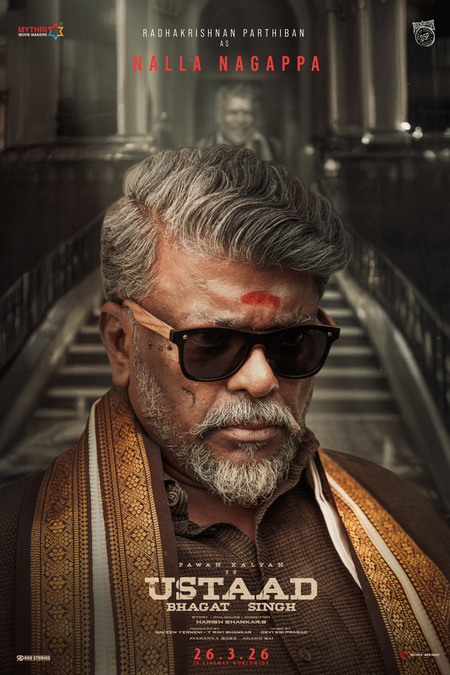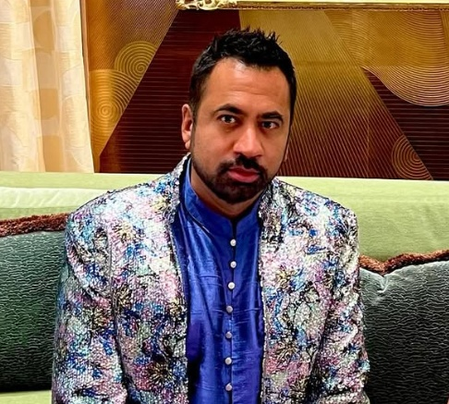
Mumbai, March 10 (IANS) The OTT platforms are getting hyperactive: Jio and Disney+Hotstar have become a single entity, Netflix has announced 22 new projects, all with top filmmakers and Amazon Prime has set March 19 as the date for launching what it calls The Next Chapter of the India Story!
The OTT platforms arrived in the country in 2016 but the awareness about them took some time to build up. People were happy with their films and television serials. The OTT platforms did not come for free. Their subscription rates were much higher than the local cable or satellite Set Top Box (STB) rates.
Besides, all these platforms initially offered mainly international content to our viewers, who had been fed on Hindi content, be it films or TV. The audience for Hollywood films in India was limited mainly to a few metros. And all those who watched Hollywood films were familiar with the stars and had their favourites.
Even some who did not follow English, did follow certain Hollywood genres such as war, western or action films just for the fun of seeing the visuals. The language did not matter. Cinemas screening foreign films, however, were few. There was that kind of audience segregation and cinemas catered to different tastes differently.
Following the arrival of OTT platforms, and sensing the shortcomings in their Indian content, Indian television channels such as Sony India and Zee, and much later, content creators like Shemaroo, which held the copyright to a lot of film content, decided to enter the OTT business.
Initially, the OTT platforms had little to offer to viewers except for films, though a lot of them were telecast on TV or cable networks and, on this count, Indian platforms enjoyed an edge because they held the rights to films and film-based programmes.
The last time when I wrote about OTT platforms, we had 40 of them catering to Indian subscribers. Today, the count is estimated at around 60. And these don’t include fly-by-night entrepreneurs. OTT platforms such as Don Cinema, Talkies, Primeshots and Gemplex are some that are untraceable.
Netflix and Amazon were among the ones to bring OTT to India. But a few people, if at all, talked about the medium. And to think about it, as of today, they are considered to be the premier sources of entertainment content for people who have some kind of internet access, whether it is via a desktop, laptop, TV set or mobile. This is the medium that can be accessed at any time, whether one is travelling, commuting, in the office, or relaxing at home.
Some people started thinking, why pay for OTT and for cable or satellite TV. Some got wiser and decided to opt for OTT because it offered more choice, including what you got on television. OTT opened the world of international content for people in India.
The struggling OTT platforms came to their own when the Covid-19 pandemic struck the world. Stuck at home because of lockdowns, and with cinemas shut down, restless Indians started looking for entertainment delivered at home. TV channels had very little to offer as shoots had stopped. OTT platforms filled in this entertainment gap.
Producers whose films were awaiting release but did not know how long the pandemic-induced lockdown would last, opted for the premieres of their films on OTT platforms. For Indians, there is no bigger lure than watching a new feature film. Especially so when people were starved of their traditional entertainment.
Films have always been a big draw and even before the days of OTT, there were video libraries, Pay TV, and, of course, movie channels. Besides commissioning web series, the OTT platforms started buying rights to films, and that put paid to the future of satellite rights. A movie was available within weeks of its theatrical release on OTT.
Also over was the era of video discs. OTT complemented the film business. It has become another source of income paying more than TV rights and is piracy-proof.
Now, the circumstances are such that feature films are not drawing footfalls in cinemas and even the supply has proved to be erratic. This is one situation. The other seems to be the aggressive ways of the OTT platforms.
Jio is taking the competition from all other OTT platforms head-on. It started with cricket, a game which has gained more popularity than movies in India. Presently, the platform and Jio Sports are airing, among other sports activities, the India-England Test series and the Women’s Premier League (WPL), which will be followed by the biggest cricket jamboree in India, the Indian Premier League (IPL).
Even when the Jio and Disney+Hotstar deal was in the works, Netflix plunged head-on into Hindi content, having signed up top-rung filmmakers. Sanjay Leela Bhansali will make a streaming serial, ‘Heeramandi: The Diamond Bazaar’. Yash Raj Films projects for Netflix are ‘Mandala Murders’ and ‘Maharaja’.
The other projects are Excel Entertainment’s ‘Dabba Caartel’, Another will be Anupam Kher’s ‘Vijay 69’, even as Anubhav Sinha recreates the 1999 Indian Airlines hijack drama in ‘IC 184: The Kandhar Hijack’.
The list goes on: Ravi KIshan starring in ‘Maamla Legal Hai’, ‘The Great Indian Kapil Show’, the musical biopic ‘Yo Yo Honey Singh: Famous’, ‘The Greatest Rivalry: India vs. Pakistan’, ‘Mismatched Season 3’, ‘Khakee: The Bengal Chapter’, ‘Yeh Kaali Kaali Ankhein Season 2’, ‘Fabulous Lives vs. Bollywood Wives’, ‘To Kill a Tiger’ and ‘Kota Factory Season 3’.
The film slate includes ‘Amar Singh Chamkila’, ‘Do Patti’, ‘Maharaj’, ‘Murder Mubarak’, ‘Phir Aayi Hasseen Dillruba’, ‘Sikandar Ka Muqaddar’, ‘Vijay 69’, and ‘Wild Wild Punjab’.
The plans of Amazon Prime Video promise to be interesting. The platform is slated to make some big announcements on March 19.
Jio will corner the eyeballs for the next couple of months with the IPL telecast while it works on adding fresh content. With the merger deal it controls the content of Disney+Hotstar, Warner Brothers (WB) and Home Box Office (HBO).
As if this much action was not enough, now a state government has decided to launch its own OTT platform. On March 7, the Kerala Government flagged off C Space. The Kerala State Film Development Corporation (KSFDC) will manage the platform. So far, C Space has selected 42 films, mostly winners of national and state awards.
OTT platforms may offer any number of web series but nothing attracts the viewer more than a film, especially if the filmmaker is a celebrated name. Looks like Netflix has just that in mind.
Guess who stands to benefit from this and get their money’s worth, which they have not been getting from the cinemas? The audience, of course. This competition among OTT platforms will mean more options.
–IANS
vinod/srb




